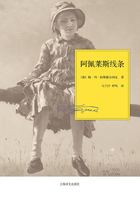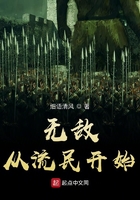easily distinguished two categories: the one desired to prove that the measure was a complete success in every way, and that all classes were benefited by it, not only morally, but also materially; whilst the others strove to represent the proprietors in general, and themselves in particular, as the self-sacrificing victims of a great and necessary patriotic reform--as martyrs in the cause of liberty and progress. I do not for a moment suppose that these two groups of witnesses had a clearly conceived intention of deceiving or misleading, but as a cautious investigator I had to make allowance for their idealising and sentimental tendencies.
Since that time the situation has become much clearer, and during recent visits to Russia I have been able to arrive at much more definite conclusions. These I now proceed to communicate to the reader.
The Emancipation caused the proprietors of all classes to pass through a severe economic crisis. Periods of transition always involve much suffering, and the amount of suffering is generally in the inverse ratio of the precautions taken beforehand. In Russia the precautions had been neglected. Not one proprietor in a hundred had made any serious preparations for the inevitable change. On the eve of the Emancipation there were about ten millions of male serfs on private properties, and of these nearly seven millions remained under the old system of paying their dues in labour. Of course, everybody knew that Emancipation must come sooner or later, but fore-thought, prudence, and readiness to take time by the forelock are not among the prominent traits of the Russian character. Hence most of the land-owners were taken unawares. But while all suffered, there were differences of degree. Some were completely shipwrecked. So long as serfage existed all the relations of life were ill-defined and extremely elastic, so that a man who was hopelessly insolvent might contrive, with very little effort, to keep his bead above water for half a lifetime. For such men the Emancipation, like a crisis in the commercial world, brought a day of reckoning. It did not really ruin them, but it showed them and the world at large that they were ruined, and they could no longer continue their old mode of life.
For others the crisis was merely temporary. These emerged with a larger income than they ever had before, but I am not prepared to say that their material condition has improved, because the social habits have changed, the cost of living has become much greater, and the work of administering estates is incomparably more complicated and laborious than in the old patriarchal times.
We may greatly simplify the problem by reducing it to two definite questions:
1. How far were the proprietors directly indemnified for the loss of serf labour and for the transfer in perpetual usufruct of a large part of their estates to the peasantry?
2. What have the proprietors done with the remainder of their estates, and how far have they been indirectly indemnified by the economic changes which have taken place since the Emancipation?
With the first of these questions I shall deal very briefly, because it is a controversial subject involving very complicated calculations which only a specialist can understand. The conclusion at which I have arrived, after much patient research, is that in most provinces the compensation was inadequate, and this conclusion is confirmed by excellent native authorities. M.
Bekhteyev, for example, one of the most laborious and conscientious investigators in this field of research, and the author of an admirable work on the economic results of the Emancipation,told me recently, in course of conversation, that in his opinion the peasant dues fixed by the Emancipation Law represented, throughout the Black-earth Zone, only about a half of the value of the labour previously supplied by the serfs. To this I must add that the compensation was in reality not nearly so great as it seemed to be according to the terms of the law. As the proprietors found it extremely difficult to collect the dues from the emancipated serfs, and as they required a certain amount of capital to reorganise the estate on the new basis of free labour, most of them were practically compelled to demand the obligatory redemption of the land (obiazatelny vuikup), and in adopting this expedient they had to make considerable sacrifices. Not only had they to accept as full payment four-fifths of the normal sum, but of this amount the greater portion was paid in Treasury bonds, which fell at once to 80 per cent. of their nominal value.
"Khozaistvenniye Itogi istekshago Sorokoletiya." St. Petersburg, 1902.
Let us now pass to the second part of the problem: What have the proprietors done with the part of their estates which remained to them after ceding the required amount of land to the Communes?
Have they been indirectly indemnified for the loss of serf labour by subsequent economic changes? How far have they succeeded in ****** the transition from serfage to free labour, and what revenues do they now derive from their estates? The answer to these questions will necessarily contain some account of the present economic position of the proprietors.
On all proprietors the Emancipation had at least one good effect:
it dragged them forcibly from the old path of indolence and routine and compelled them to think and calculate regarding their affairs.
The hereditary listlessness and apathy, the traditional habit of looking on the estate with its serfs as a kind of self-acting machine which must always spontaneously supply the owner with the means of living, the inveterate practice of spending all ready money and of taking little heed for the morrow--all this, with much that resulted from it, was rudely swept away and became a thing of the past.















